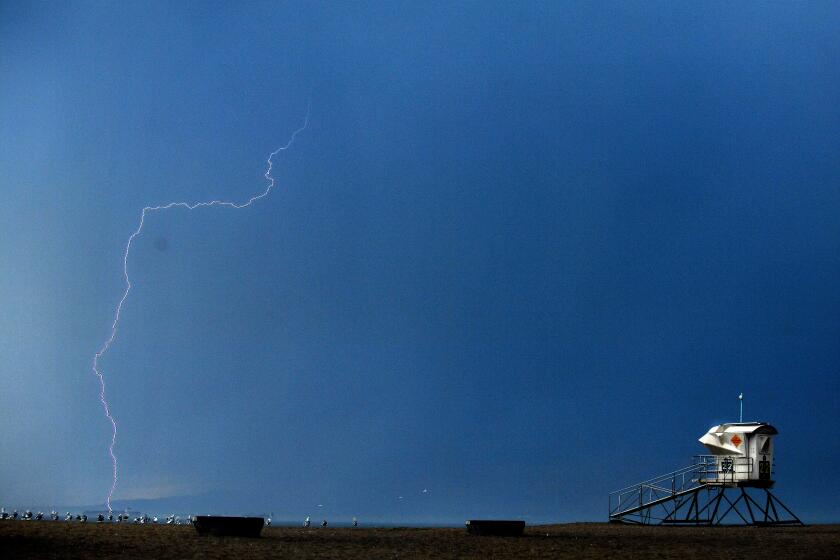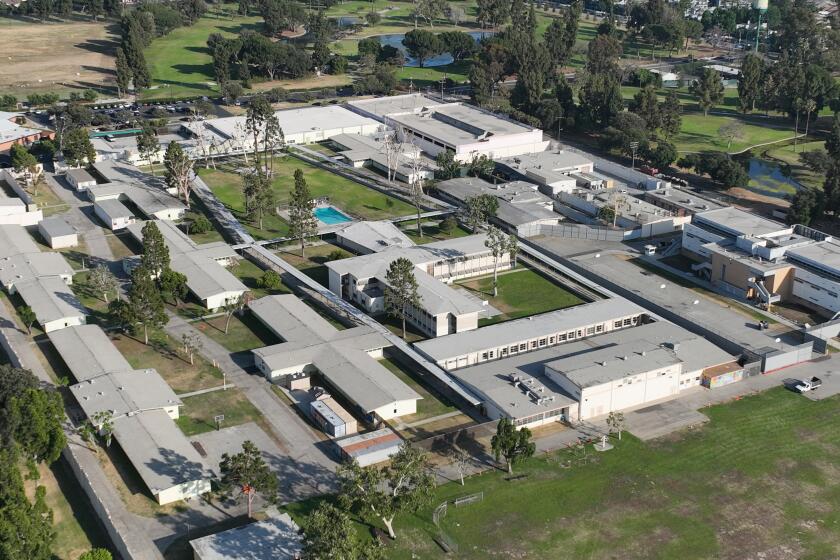LAPD discipline case raises questions of favoritism
- Share via
Shaun Hillmann’s career as a Los Angeles police officer appeared to be over after he was caught on tape outside a bar uttering a racial slur, and later denied it to his superiors.
High-ranking police officials recommended that Hillmann be fired, according to internal LAPD records. A disciplinary board agreed, voting unanimously in January that he should be kicked off the force.
Police Chief Charlie Beck decided otherwise, sparing the career of an officer whose father and uncle worked for the department.
HOMICIDE REPORT: A story for every victim
Overruling the board, Beck opted to return Hillmann to duty after a 65-day suspension, according to several sources with knowledge of the chief’s decision. The sources requested anonymity because police discipline matters are confidential.
The head of the Police Commission, which oversees the department, expressed concern about Beck’s decision.
“Based on what I’ve seen so far, this stands out as something that I really want explained,” said Steve Soboroff, the commission president. “It has to be an important goal that the system is seen by officers as fair — that it doesn’t favor or disfavor anyone. This case has risen to a level that it’s being discussed and looked at as a test” of how Beck disciplines officers.
MANHUNT FOR CHRISTOPHER DORNER: A double killing and a wave of fear
The controversy comes at delicate time for Beck as the commission prepares for an extensive review of the chief’s performance to decide whether to offer him a second five-year term. Soboroff, who described himself as supportive of the chief overall, said the Hillmann case, and Beck’s approach to discipline in general, will come under scrutiny during the commission’s review.
Beck and the commission have clashed over the panel’s concerns that the chief is uneven and sometimes too lenient, notably when officers improperly use force or are caught driving while intoxicated.
Citing state confidentiality laws, Beck declined to discuss the details of Hillmann’s case. But he defended the decision to give the officer back his badge and denied that he was swayed by Hillmann’s family ties.
Beck said he agreed with the disciplinary board that Hillmann’s misconduct was serious, but said firing him would have been too harsh.
“The actions are egregious. What we differ on is the penalty and the penalty ultimately is the domain of the chief of police,” Beck said. “I attached a penalty that is appropriate — that matches the nature and circumstances of the behavior.”
Beck said he takes into account an officer’s disciplinary history and job performance, among other factors, in deciding on punishment. Hillmann had a clean disciplinary record and numerous commendations, LAPD records show.
Hillmann, 33, is the son of a retired LAPD officer. And his uncle is former Deputy Chief Michael Hillmann — a respected figure in the LAPD who served in the department’s upper ranks with Beck during a career that spanned four decades.
Shaun Hillmann did not respond to requests for comment.
Michael Hillmann said no family member contacted Beck to ask for leniency.
The account of what occurred at the Maverick Saloon in Norco early July 14, 2012, is based on confidential LAPD investigative files obtained by The Times. The files include transcripts of audio recordings, statements by Hillmann and witnesses, and the formal findings by police officials and the hearing board.
Shortly before the bar’s closing time at 2 a.m., Hillmann’s wife was dancing with a black man whom investigators were unable to identify. Suddenly, she pushed the man away, claiming that he had groped her breasts, according to witness statements.
By his own account to investigators, Hillmann who was off-duty rushed over and shoved the man. A bouncer and the bar’s manager intervened and brought Hillmann outside.
As the man left the venue with several friends, a shouting match erupted with Hillmann, who is white. Reaching into the front pocket of his pants, Hillmann drew a .45-caliber Smith & Wesson pistol, Hillman and the bar manager told investigators. The men fled in their cars.
A short time later, Hillmann got into his own car and drove off. But he was met at the parking lot exit by a deputy from the Riverside County Sheriff’s Department.
“You’re probably here for me,” Hillmann said to the deputy, sticking his hands out the car window to be handcuffed according to the deputy’s account.
The deputy secretly recorded his questioning of Hillmann. Hillmann said he drew his gun because he saw the black man grab the waistband of his pants — a gesture that Hillmann said he interpreted as a sign that the man had a concealed gun.
“Dude, I’m watching this [expletive] monkey…reach for his waistband, under his shirt, trying to intimidate me,” Hillmann told the deputy, according to a transcript of the recording.
Later, the bar manager and bouncer told the deputy that they had heard Hillmann repeatedly shout another racial slur at the black men as they left the bar.
The deputy asked Hillmann how much he had to drink. Hillmann responded with profanity and said he was drunk, according to the deputy’s account of the exchange. The deputy asked Hillmann to perform a field sobriety test and take a Breathalyzer exam. Hillmann refused. Eventually, a Riverside sheriff’s sergeant arrived and ordered the deputy to let Hillmann go, saying that he didn’t believe Hillmann was intoxicated.
Later, during interviews with an LAPD internal affairs investigator, Hillmann said he had not used racial epithets and had not been drunk that night. Hillmann also insisted that he had not driven his car after the confrontation. LAPD investigators wrote that a security video showed he did.
Concerned that the bar manager’s account may have been clouded by anger toward Hillmann, the disciplinary board dismissed several allegations against the officer. They found that Hillmann had unnecessarily provoked the confrontation, made the “monkey” comment caught on tape, and gave false statements to investigators.
Those findings, the board decided, warranted dismissal. “If an officer’s integrity is damaged…they are no longer able to carry out the duties of a police officer,” the board found. .
Since Beck took over as chief, disciplinary boards have recommended that 100 officers be fired. Before the Hillmann case, Beck had agreed in all but one.
This time, according to sources, Beck gave Hillmann the 65-day suspension and ordered the officer to seek substance abuse counseling. The punishment includes an agreement that Hillmann will be fired for any similar missteps.
Soboroff and others in the department learned of the Hillmann case when they received an anonymous letter saying that Beck gave the officer preferential treatment. The Times also received a copy of the letter.
Even some of Beck’s staunchest supporters worried about the perception that Hillmann was given a second chance in circumstance that would have led to another officer’s firing.
“The relative of a hero is treated differently in that culture,” said Connie Rice, a prominent civil rights lawyer who backed Beck in his bid to become chief and has worked with him on reform issues. “Knowing everything Mike Hillmann gave to the department, it doesn’t surprise me one bit.”
More to Read
Sign up for Essential California
The most important California stories and recommendations in your inbox every morning.
You may occasionally receive promotional content from the Los Angeles Times.














